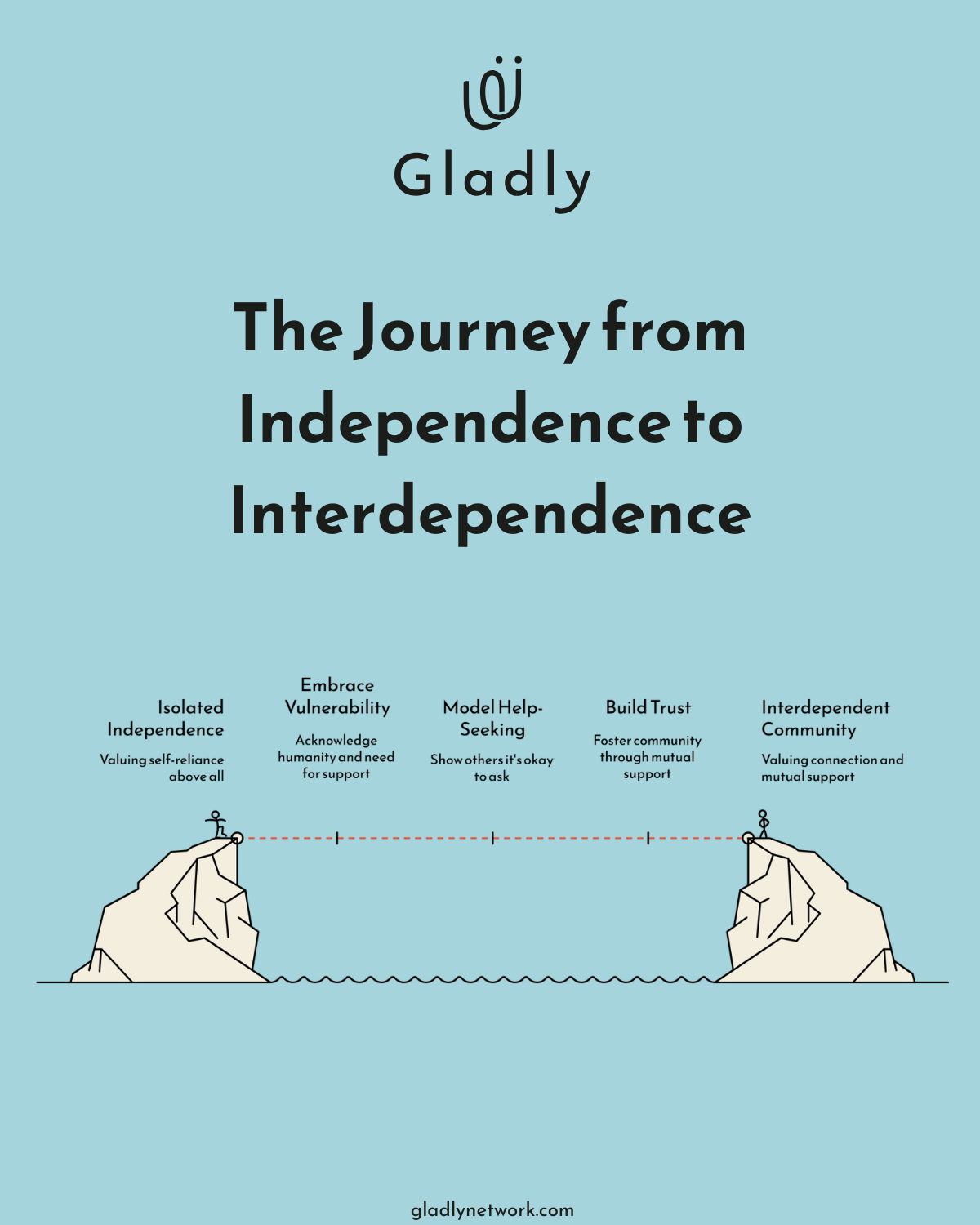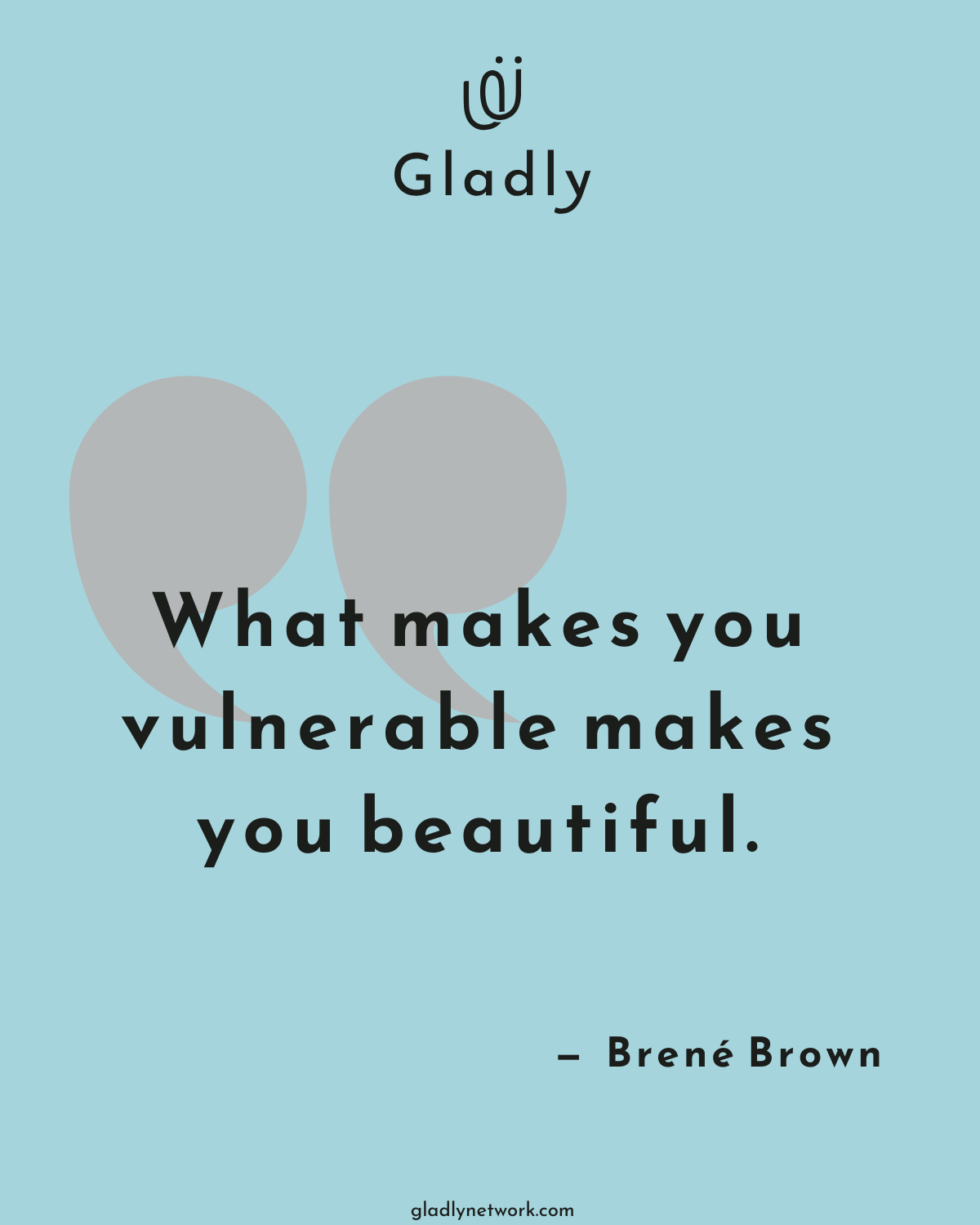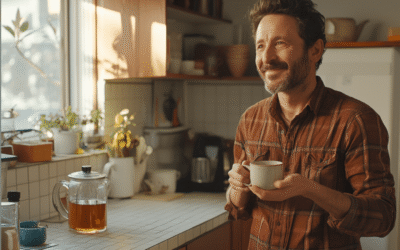That moment when your to-do list feels endless, but you keep scrolling instead of saying something. When you’re carrying more than you should, but “I’m fine” rolls off your tongue anyway.
Here’s what we’re learning: asking for help means recognizing you don’t have to handle everything alone. It’s actually a form of self-awareness.
At Gladly, we see this every day. The most resilient people aren’t the ones who never ask for support. They’re the ones who’ve learned that reaching out creates something beautiful: connection.
Why We Think Help-Seeking Is Hard
We’ve been taught that independence equals strength. But that leaves out a crucial piece: vulnerability creates trust, and trust builds community.
When you ask for help, you’re doing something quietly revolutionary. You’re acknowledging your humanity and inviting others to show theirs. You’re modeling something your coworkers, friends, and family need to see more of.
Think about it this way: when someone asks you for help, do you think less of them? Or do you feel trusted, needed, maybe even grateful they came to you first?

Practical Ways to Ask with Confidence
Ready to try? These shifts can change how asking for help feels:
- Start small and specific. Replace “I’m overwhelmed” with “Can you help me finish this report by 3 PM?” Clear requests get clearer responses and feel less vulnerable.
- Write it down first. Getting your thoughts on paper makes the actual ask feel less scary and more organized. Try: “I need help with X because Y, and it would take about Z time.”
- Practice with someone safe. Choose a person who listens without judgment. Build your confidence there first before approaching others.
- Set boundaries around timing. Say when you need the help by, and be okay if someone can’t meet that timeline. That just means they’re being honest about their capacity, which is actually helpful.
- Offer something in return. Not as payment, but as a connection. “I’d love to help you with your presentation next week,” keeps the relationship balanced.

Les Brown said it perfectly: “Ask for help. Not because you are weak, but because you want to remain strong.”
When you ask for support, you create space for others to do the same. You build workplaces and relationships where people can be human. Where strength means knowing when to share the load instead of carrying everything yourself.
That’s the kind of culture we’re building at Gladly. One conversation, one honest moment, one ask at a time.











